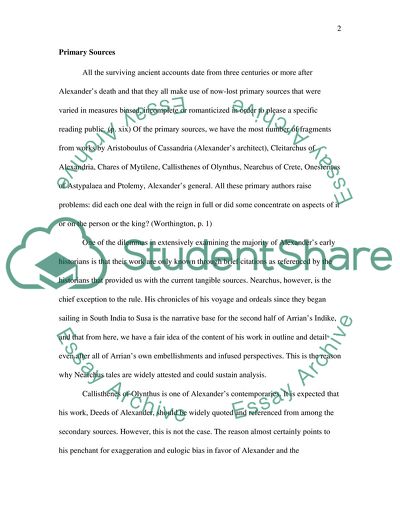Cite this document
(Alexander the Great: the Tragedy of Triumph Assignment, n.d.)
Alexander the Great: the Tragedy of Triumph Assignment. Retrieved from https://studentshare.org/history/1726130-what-methodological-issues-are-raised-by-the-ancient-accounts-of-the-reign-of-alexander-the-great-and-what-are-the-limitations-of-these-accounts
Alexander the Great: the Tragedy of Triumph Assignment. Retrieved from https://studentshare.org/history/1726130-what-methodological-issues-are-raised-by-the-ancient-accounts-of-the-reign-of-alexander-the-great-and-what-are-the-limitations-of-these-accounts
(Alexander the Great: The Tragedy of Triumph Assignment)
Alexander the Great: The Tragedy of Triumph Assignment. https://studentshare.org/history/1726130-what-methodological-issues-are-raised-by-the-ancient-accounts-of-the-reign-of-alexander-the-great-and-what-are-the-limitations-of-these-accounts.
Alexander the Great: The Tragedy of Triumph Assignment. https://studentshare.org/history/1726130-what-methodological-issues-are-raised-by-the-ancient-accounts-of-the-reign-of-alexander-the-great-and-what-are-the-limitations-of-these-accounts.
“Alexander the Great: The Tragedy of Triumph Assignment”. https://studentshare.org/history/1726130-what-methodological-issues-are-raised-by-the-ancient-accounts-of-the-reign-of-alexander-the-great-and-what-are-the-limitations-of-these-accounts.


